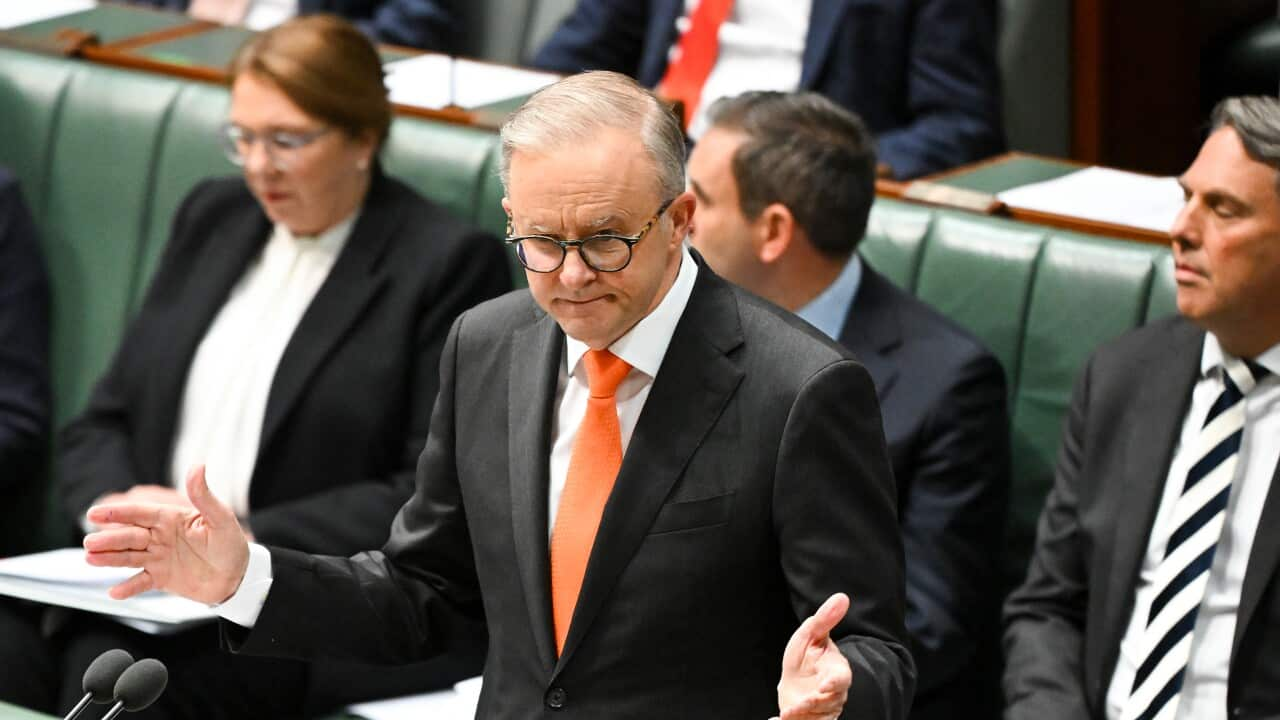KEY POINTS:
- The government's $10 billion housing bill has stalled in the Senate.
- The Greens are demanding Labor coordinate a rent freeze with the states.
- But many economists doubt the effectiveness of rent freezes.
Labor's social housing bill remains dead in the water for now.
With support from most of the Senate crossbench secured, the Greens are the last impediment to its Housing Australia Future Fund (HAFF) becoming law.
Prime Minister Anthony Albanese insists Labor will not compromise further, even alluding to an early election if the minor party does not relent.
Speaking to parliament on Thursday, Mr Albanese claimed the Greens' "pathology of conflict" was stymying progress for political gain.
"You can't say you support public housing while you're voting against it ... Vulnerable people should not be the collateral damage in your manufactured political conflict. Time to stop blocking so we can start building," he said.
The Greens are claiming credit for Labor edging further towards its stance. But they've delayed the bill until at least October, arguing it still doesn't go far enough.
Why is the bill stuck?
Australia is grappling with a severe housing shortage, exacerbated by a faster-than-expected return of overseas arrivals after the COVID-19 pandemic.
The percentage of homes owned outright has steadily declined since the mid-1990s, while the percentage of homes now rented climbing to reach around 30 per cent.
The HAFF would invest $10 billion into a future fund, with the proceeds funding the construction of social and affordable homes. Initially, Labor said that could rise to $500 million each year.
Labor says HAFF would build 30,000 homes over five years.

The Greens warn the housing bill does not go far enough. Source: AAP / Lukas Coch
Both have since made concessions - the Greens lowered their annual demand to $2.5 billion, while Labor has offered a separate one-off $2 billion splurge and guaranteed a minimum of $500 million each year.
But that has not led to an agreement, with the Greens insisting Labor's plan provides inadequate funding and still does nothing for renters, who fill roughly a third of properties.
And they're not walking away from their demand for Labor to coordinate a two-year national freeze on rent increases.
Can the federal government freeze rents?
Labor has consistently stressed the Commonwealth doesn't have the power to freeze rents unilaterally.
But the Greens want a short-term rent freeze, and a cap on how much rents can be raised in the long-term.
They want it to use the national cabinet to corral the states and territories and offer them $1 billion to incentivise cooperation.
The party’s housing spokesman Max Chandler-Mather said "you can’t ignore” the third of properties occupied by renters.
“Unlimited rent increases will see more and more people evicted from their homes because they can't afford the private rent, and join the queues for social housing,” he told 730.
“[That] will basically reduce our chances to zero of actually tackling the housing crisis.”
The ACT is the only jurisdiction in Australia with some form of rent freeze. Landlords in the territory are not allowed to raise rents more than 110 per cent above headline inflation, though that only applies to tenants already in the property.
Victoria has flagged a willingness to consider placing a cap on rent increases, but no major state has publicly backed a rent freeze.
On Thursday, Treasurer Jim Chalmers insisted Labor is "prepared to show leadership" on renters' rights at the National Cabinet.
"But I think the main point ... is that they these are largely matters for the states, and we've got our own broad and ambitious housing agenda," he said.
Greens leader Adam Bandt seized on the comments on Thursday, claiming they amounted to a concession that a Commonwealth-organised rent freeze was possible.
"It seems like the treasurer has finally listened to what the Greens have been saying for months," he said.
"There is a better way of tackling the housing crisis than taking $10 billion and gambling it on the stock market ... We don't do that with public schools. We don't do that with hospitals. We just spend public money on it."

Treasurer Jim Chalmers says the federal government aims to lead National Cabinet over support for renters. Source: AAP / Mick Tsikas
Do rent freezes work?
Rent freezes benefit individual renters facing rising prices, but many economists warn they are an ineffective and often counterproductive solution in the long term.
Stanford University analysed the impacts of a 1994 rent freeze in San Francisco, finding it benefited some renters while harming others.
The researchers found people who were renting when the freeze was introduced - disproportionately older people - saved a total of US$2.9 billion between 1994 and 2010.
But those who arrived later faced greater scarcity and, as a result, higher prices.
The researchers estimated new tenants paid roughly 5 per cent more than they would have without the freezes. That also totalled US$2.9 billion, meaning they effectively bankrolled the benefits reaped by pre-existing tenants.
Wood Property also looked at a six-month rent freeze in Scotland last year, finding it hampered the key to lowering rents: extra housing supply.
It stressed a major build-to-rent development, which would have built 800 rental homes and nearly 700 studios for students, was halted after the freeze was introduced.
"[Freezes] feel good in the short-term and may even help people through a tight spot. However, they just kick the can down the road and make the problem worse," it concluded.
Rather than allowing a rental to go to the open market, Wood found renters were better off unofficially subletting it above the frozen rate.
"If you said to every property owner out there: you've got until October until the rent freeze comes on, what do you think would happen? Do you think they'd put up their rents or do you think they'd decrease [them]?" Mr Albanese said.











